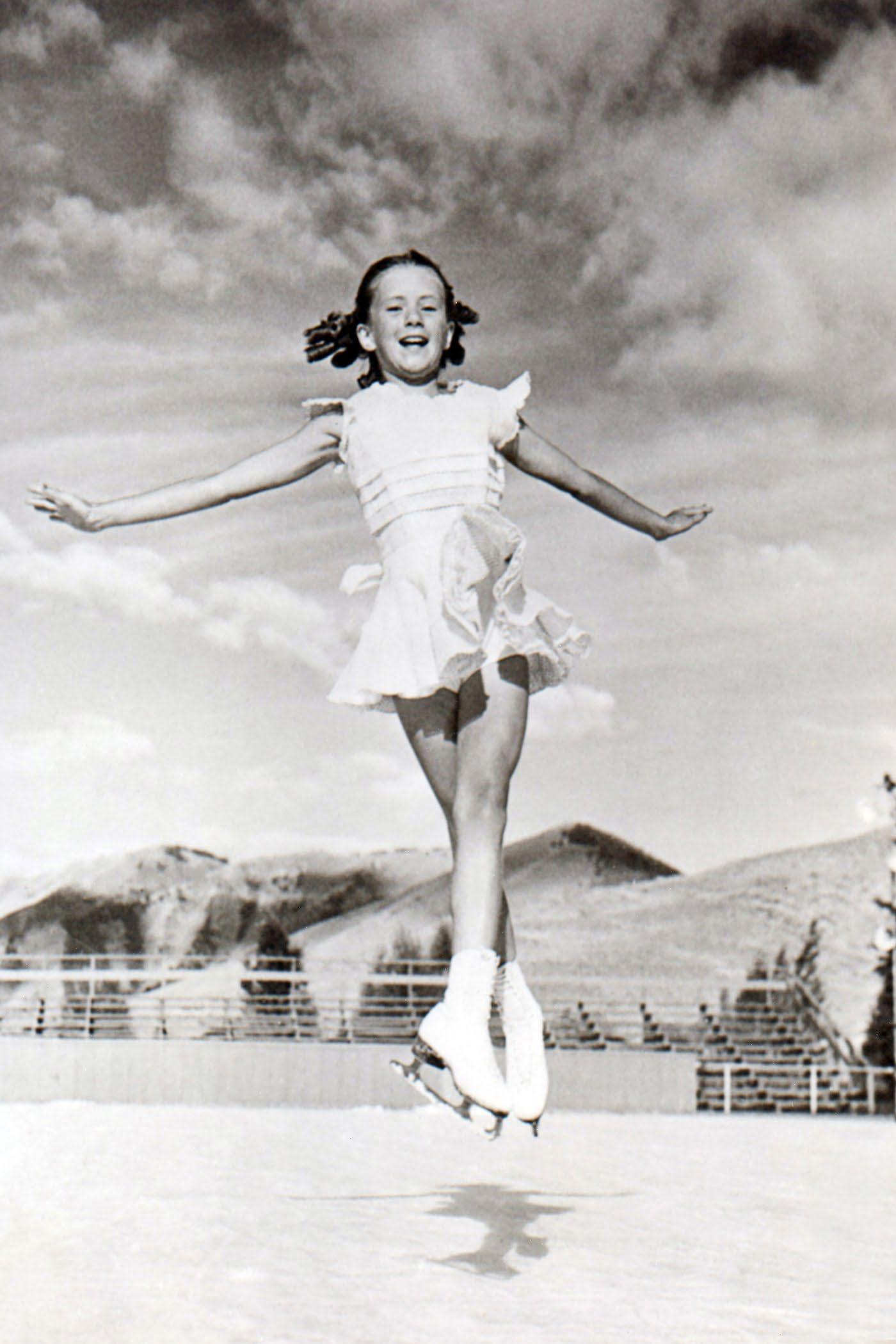
3 minute read
Because I Can Skate, I Am Somebody
By Kent McDill
Sherry Cook wears animal hats when she coaches skating, whether she is teaching learn to skate or hockey.
Advertisement
Cook believes the hats are a successful part of her skating philosophy to create a comfortable and friendly environment in which to learn.
That philosophy comes in handy best when working with the students with developmental challenges, including those with autism or dealing with Down’s Syndrome or other developmental issues. For the parents of those children at the Cabin John Ice Rink in Rockville, Md., or the Medstars Capital Iceplex in Arlington, Va., Cook is the coach they request.

June, 1949 at age 10
“I have empathy toward people, and I have enormous patience,” Cook said from her home in Arlington. “I seem to be able to help people who have mental or physical disabilities. Some people don’t like slow learners or anyone who is different. I like people, and I honor them and I want them to feel good about themselves. I help people who do not follow the regular learning pattern.”
Cook, who turns 80 years old in November, began coaching as a way to pay her way through college following a skating career that included a silver medal at the 1948 U.S. Junior Nationals. When college was complete, she realized she had a gift for teaching, and has remained a skating coach since, working in Seattle, Portland and Salt Lake City before moving east.
She warmed to the idea of coaching kids with special needs because she had a gift for reaching them. When she started that area of coaching, before the turn of the 21 st Century, “I didn’t know there was a name for those skaters. I just knew there were children who were having problems.
“I can recognize them in a skating group class,” she said. “They could not look at me, could not focus on me. I tracked it naturally. I am sensitive to skaters who cannot talk, who scream, who are frightened by noise, as so many of my skaters are. They also have to endure the dislike of their classmates, because they do not fit in.”
Children with intellectual developmental problems also often have physical developmental issues, and Cook has developed a program that allows them to become comfortable on the ice standing on skates.

“My job initially is to help them with balance,” Cook said. “I don’t touch them. After a while they start to trust me, trust than I am not going to hurt them, or scream at them, or criticize them, and they start touching me. They are usually stronger than I am, and sometimes they almost crush me with their hugs.”
Success for Cook comes when those special needs skaters become functional on the ice, which sometimes is the place they manage to be mot comfortable with their movements.
“They are not sports people, they feel insecure off the ice,” Cook said. “My job is to see where they are, team them progressions, and work until they get a sense that they are OK on the ice. That’s when the hugs come in.”
“Our sport is about feeling,” Cook said. “We can’t look at our feet, we can’t look down. We have to feel it. We have a lot of falls, but all of a sudden, they know how to make the blade glide, know how to move through space. They think ‘If I am off the ice, I don’t have much going for me” but on the ice, this gives me that freedom where I can move through space. In a few movements, I can go forward or backward. Once you can flow on the ice, you have that feeling that ‘I am somebody’.”







